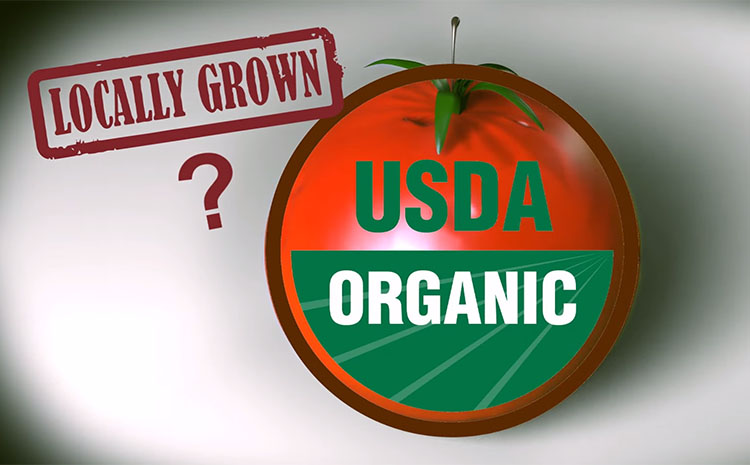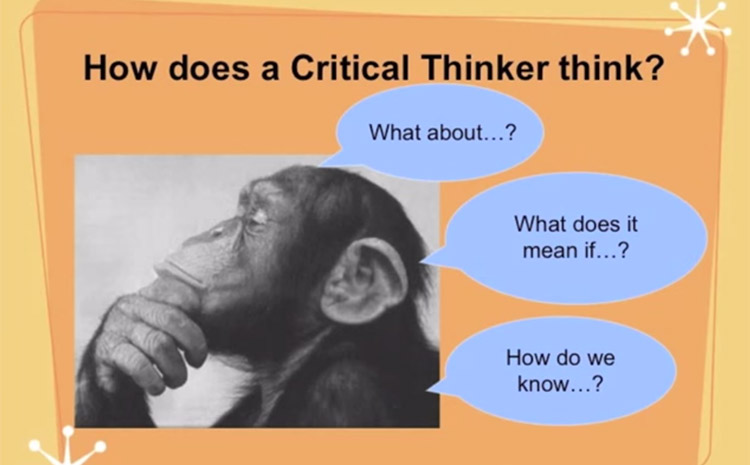Critical thinking
Learning to learn means learning to think for yourself, on your own, and in collaboration with others.
What is critical thinking?
Critical thinking is objective thinking: being able to think logically, analyse an argument, look at alternative viewpoints, and separate fact from opinion.
By understanding what critical thinking involves and how critical thinkers think, you can learn to express yourself clearly and develop a balanced argument. Critical thinking is an important skill, not just while you are studying, but throughout life.
Critical thinking skills
Critical thinking skills are:
-
Looking at all sides of an argument
-
Weighing up the options
-
Considering the sources and soundness of the evidence
-
Factoring in your own biases.
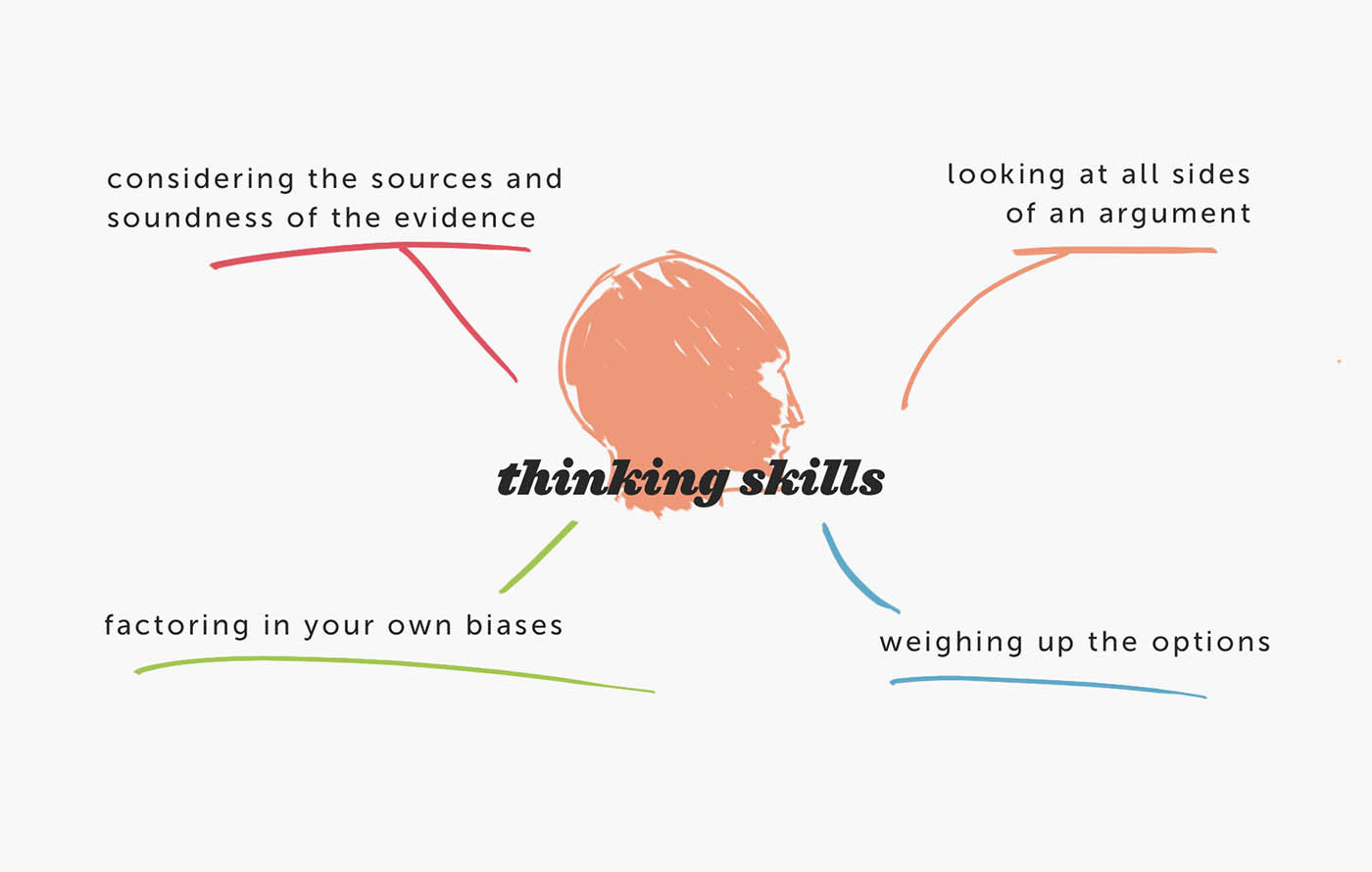
Responding objectively
To respond objectively rather than subjectively (basing your opinion on your personal bias), you need to be able to keep an open mind and to keep asking questions about what you are reading, thinking and doing.
The questions you ask and the method you use to examine material will depend on the task (for example, you might be responding to an essay question) and the material itself, which could be in written, visual or verbal form. This source material could include:
- Course material
- Survey results
- Published papers, journals and books
- Theories
- Media stories
- History
- Scientific research
- Political statements
Types of thinking
There are various specific types of thinking skills that contribute to thinking critically and various ways to apply them.
Blooms taxonomy
In the 1950s, Benjamin Bloom developed a classification of thinking skills that is still helpful today; it is known as Bloom’s taxonomy. He lists six types of thinking skills, ranked in order of complexity.
In 2001, this taxonomy was modified in the following way:
| Higher level thinking | Creating |
| Evaluating | |
| Midlevel thinking | Analysing |
| Applying | |
| Lower level thinking | Understanding |
| Remembering and recalling |
There are certain verbs that apply to each skill set. When you see those verbs as a prompt in an assignment or an exam, you will know what kind of thinking the instructor expects from you.
The graphic below outlines each skill, some common verbs associated with the skills and what is involved in that type of thinking.
-
Thinking Skill
Remembering and Recalling
Verbs
Bookmark, count, describe, draw, enumerate, find, Google, identify, label, list, match, name, quote, recall, recite, search, select, sequence, tell, write
What It Involves
Retrieving or repeating information or ideas from memory. This is the first and most basic thinking skill you develop. Exhibits previously learned material by recalling facts, terms, basic concepts and answers.
What is...?
When did ____ happen?
How would you explain...?
Why did...?
How would you describe...?
-
Thinking Skill
Understanding
Verbs
Blog, conclude, describe, discuss, explain, generalise, identify, illustrate, interpret, paraphrase, predict, report, restate, review, summarise, tell, tweet
What It Involves
Interpreting, constructing meaning, inferring, or explaining material from written, spoken, or graphic sources.
How would you compare...? contrast...?
Explain in your own words...?
What facts or ideas show...?
What evidence is there that...? -
Thinking Skill
Applying
Verbs
Apply, articulate, change, chart, choose, collect, compute, control, demonstrate, determine, do, download, dramatise, imitate, implement, interview, install (as in software), participate, prepare, produce, provide, report, role-play, run (software), select, share, show, solve, transfer, use
What It Involves
Using learned material or implementing material in new situations. Solving problems by applying acquired knowledge, facts, techniques and rules in a different way.
What examples can you find to...?
How would you show your understanding of...?
What approach would you use to...?
What might have happened if...? -
Thinking Skill
Analysing
Verbs
Analyse, break down, characterise, classify, compare, contrast, debate, deduce, diagram, differentiate, discriminate, distinguish, examine, infer, link, outline, relate, research, reverse-engineer, separate, subdivide, tag
What It Involves
Breaking material or concepts into key elements and determining how parts relate to one another or to an overall structure or purpose. Mental actions included in this skill are examining, contrasting or differentiating, separating, categorising, experimenting, and deducing.
What inference can you make from...?
How would you classify...?
How would you categorise...?
Can you identify the different parts...? -
Thinking Skill
Evaluating
Verbs
Appraise, argue, assess, beta test, choose, collaborate, compare, contrast, conclude, critique, criticise, decide, defend, “friend/de-friend,” evaluate, judge, justify, network, post, predict, prioritise, prove, rank, rate, review, select, support
What It Involves
Assessing, making judgements, and drawing conclusions from ideas, information, or data. Critiquing the value and usefulness of material. This skill encompasses most of what is commonly referred to as critical thinking.
How would you compare...?
Which do you think is better...?
Evaluate contribution of____ to...
What was the value or importance of ___ in...?
What would you have recommended if you had been...? -
Thinking Skill
Creating
Verbs
Adapt, animate, blog, combine, compose, construct, create, design, develop, devise, film, formulate, integrate, invent, make, model, modify, organise, perform, plan, podcast, produce, program, propose, rearrange, remix, revise, rewrite, structure
What It Involves
Putting parts together or reorganising them in a new way, form or product. This process is the most difficult mental function. This skill will make you stand out in your tertiary studies and is in very high demand in the workplace.
What might have happened if...?
Can you propose an alternative interpretation to that of...?
Is there a marmite solution here?
Why is critical thinking important?
Without thinking critically, you are only looking at the surface of things.
Critical thinking helps you to sort out what is accurate and what is not, and to give you a solid, factual base for solving problems or addressing issues. Without thinking critically, you are only looking at the surface of things.
When you come across a politician's statement in the media, do you accept it at face value? Do you accept some people's statements and not others'? The chances are you exercise at least some judgement, based on what you know about the particular person, and whether you generally agree with them or not.
Knowing whether or not you agree with someone is not necessarily the same as critical thinking, however. Your reaction may be based on emotion ("I hate that guy!"), or on the fact that this elected official supports programmes that are in your interest, even though they may not be in the best interests of everyone else.
Specific reasons for the importance of critical thinking:
Critical thinking identifies both the bias in what it looks at (its object), and the biases you yourself bring to it. If you can address these honestly, and adjust your thinking accordingly, you will be able to see the object in light of the way it is slanted, and to understand your own biases in your reaction to it.
Critical thinking focuses on analysing and understanding its object. It eliminates, to the extent possible, emotional reactions, except where they become part of an approach or solution.
Critical thinking never considers anything in a vacuum. It's object has a history, a source, a context. Thinking critically allows you to bring these into play. In this way you are getting more than just the outline of what you are examining, and making a realistic and effective solution to a problem more likely.
Some of the things that affect critical thought are:
> Previous situations,
> Personal histories
> General assumptions about an issue
Critical thinking identifies them and questions them as well.
A situation or issue may have a seemingly simple explanation or resolution, but it may rest on a complex combination of factors.
Thinking critically unravels the relationships among these, and determines what level of complexity needs to be dealt with in order to reach a desired conclusion.
The whole point of critical thinking is to construct the most objective view available. One hundred per cent objectivity may not be possible, but the closer you can get, the better.
The closer you are to dealing with things as they really are, the more likely you are to be able to address a problem or issue with some hope of success.
Driving progress
Critical thinking has been at the root of all human progress. Most of the social, artistic, and technological ground breakers through history have used critical thinking. Almost any area of humanity's development started with someone looking at the way things were and saying "It doesn't have to be that way. What if we looked at it from another angle?"
How to start thinking critically
A critical thinker will ask themselves questions:
-
What's happening?
-
Why is it important?
-
What don't I see? What am I missing?
-
How do I know this information?
-
Who is saying this information?
-
What other ideas or possibilities exist?
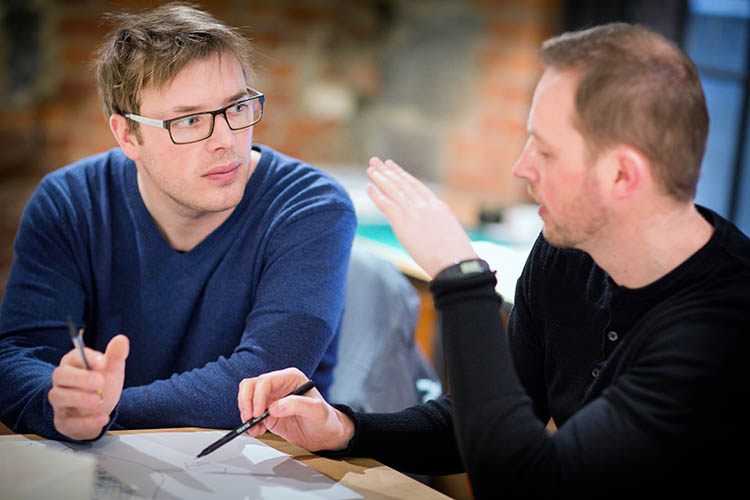
Question your assumptions.
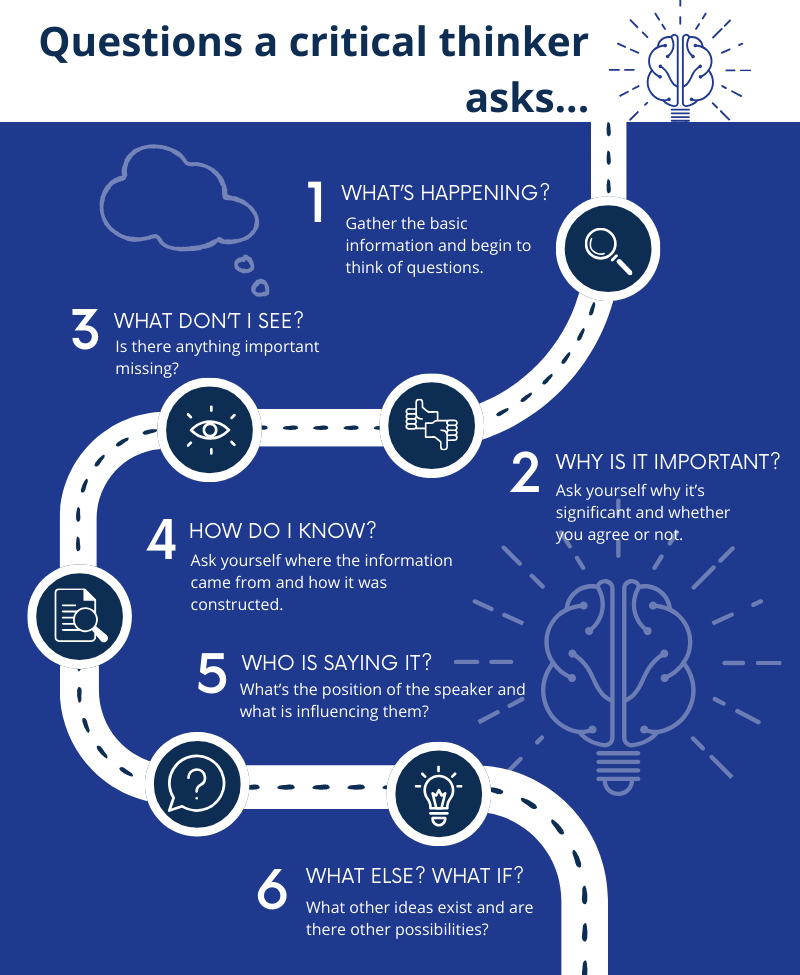
Steps to thinking critically
We make a lot of assumptions about almost everything. It is how our brain processes certain pieces of information, and how we get along in everyday life. You could say they are the foundation of our critical framework. But what if those assumptions turned out to be wrong, or at least not entirely truthful?
Don't take information on authority until you have investigated it yourself.
However, like assumptions, taking information on authority can be useful. Instead of double-checking everything anyone says, we tend to label information as either coming from a trustworthy or untrustworthy source. Just because it was published in a magazine or broadcast over television does not mean it is necessarily true.
Asking questions is perhaps the most important aspect of critical thinking.
To improve your critical thinking techniques:
Find information on the topic you are critiquing. An uninformed critique is sometimes worse than one merely executed badly.
Only use absolutes like "never" when you are completely sure. However, at the same time, be assertive in your criticism.
Know and differentiate between when a discussion is conducted from inductive reasoning or deductive reasoning.
Inductive reasoning > the particular to the general
Deductive reasoning > the general to the particular
It is likely that other people will offer a new perspective which could change your approach. Consider people both from different age groups and different occupations.
Learn from their mistakes and strengths to improve your own style of critique.
Practise so you will get better at it. Take notice if others critique your critique.
Your aim is not to critique the person, but the proposal they put forward.
You can critique something better if it is within your field of expertise. For example, who better than a painter to critique a painting? Or who better than a writer to properly analyse another writer's works?
References
Attributions
Community toolbox. Rabinowitz, P. University of Kansas. (2013). Licensed under a Creative Commons Attribution-Noncommercial-Share Alike 3.0 License
Hero image: Abstract artwork by Dan Gold. Licensed under a Pexels.com license.
How to ask questions that prompt critical thinking. Open Educational Resources. UCD Dublin. Licensed under a Creative Commons 3.0 Unported License
How to Improve Critical Thinking Skills. WikiHow. Licensed under Creative Commons Attribution-NonCommercial-ShareAlike 3.0 Unported
Writers’ handbook. Lardbucket.org. Licensed under a Creative Commons by-nc-sa 3.0 License


